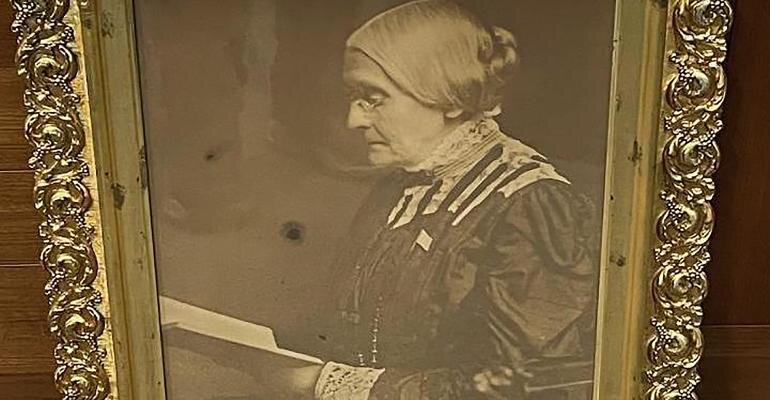Publications

New Reporting Requirements On Cryptocurrency, Nonfungible Tokens And Other Digital Asset Transactions.
The U.S. Senate has passed the “Build America Act of 2021” also known as the bipartisan infrastructure bill, that includes new reporting for cryptocurrency transactions and brokers of cryptocurrency…the Bill means that estate plans including any sort of digital asset in an estate will become more complicated.

Family Business Sanity Check

Lessons To Be Learned From Failed Celebrity Estates
If you have an Estate Plan in place, this is a good time to review your existing documents to make sure they still accomplish your wishes. Here are the questions you should think about:
Does your Will match your wealth transfer wishes?
Are your assets titled correctly, and have you set up the appropriate beneficiary designation forms?
Have you established and funded all necessary Trusts? …

The New Biden Green Book: Tax Law Changes And Unintended Consequences

Lifting The Veil: Art Deals, The Bank Secrecy Act And The Need For Art Fiduciaries
The use of the art market to launder drug money; and, how the government is dealing with the issue by extending the reporting requirements of the Bank Secrecy Act to the art and antiquities market. The reporting requirement is a sharp departure from the otherwise confidential art market and will require artists and collectors to change their mindset when buying and selling art. Indeed, this change, the proposed changes in the U.S. tax laws and the emergence of non-Fungible Tokens (NFT) is prompting a sea change in how fiduciaries manage these assets during lifetimes and after death.

The Coming Storm
Yesterday, May 20, 2021, Senator Bernie Sanders (I-VT) introduced S. 994, the "For the 99.5 Percent Act," to "reinstate estate and generation-skipping taxes, and for other purposes.". This Act amends the Internal Revenue Code by increasing the gift and estate tax rates from 40% to a high of 65% and decreasing over the basic exclusion amount from $10 million, adjusted for inflation to now over $11.7 million, to $3.5 million with no adjustment for inflation .

Tactics To Reduce Your Capital Gains Tax And Your Estate Tax
To those who have highly appreciated assets and expect their estates to exceed $3.5 million, is to be better educated about these tactics and their advantages and disadvantages especially with the turbulent environment for tax laws in the coming years.

10 Estate Planning Must-Dos Before You Travel
Many travelers manage risk by purchasing trip cancellation insurance. Savvy travelers see risks from a larger perspective, though, manage worst-case scenarios when traveling abroad. Pre-travel estate planning is at the top of their list as they take into account what might happen if they are injured or worse while far from home. Here are 10 items that you'll want to add to yours.

The Art Of Managing A Collection
Management of artwork and other collectibles can be simplified by aggregating assets based on: 1.) the role that the owner plays for income tax purposes; 2.) the owner’s goals in life and at death. To manage collections effectively, we need perceptive market analysis with the ability to sort significant trends from fads, we need detailed expertise with income and estate taxes peculiar to tangible assets, and last but not least, we need to be sensitive to the feelings and emotions peculiar to the collector and heirs.

Alternatives to Investing in the Stock Market
During the course of almost 35 years of settling estates for a diverse group of clients, and seeing the results of their investments, I’ve seen first-hand the range of investment opportunities beyond publicly traded stocks. Investing in real estate, debt, tangible assets, starting your own business are a few alternative investment ideas.

What Do You Do When The Family CEO Suffers From Dementia?
The result of such strategic planning by the family, and advised by their professionals, is that the Family always has a “Plan B” to deal with difficult situations, and understand the time and costs needed to implement that Plan B if something like mental illness does strike. Without those strategic options, the family is thrown back onto the tactics available through the courts that may be surprisingly costly and time-consuming.

Going Beyond Preserving A Collection – The Private Operating Foundation
Many times, an artist or collector wishes to preserve their art collection by donating the collection to a museum or charity. Often the museum, university or other organization is unwilling or unable to integrate, preserve, store and display the entire collection along with the associated documents. Even if there is a financial gift to sufficiently endow the collection today, there is no certainty that the endowment will be able to fund the charity indefinitely into the future. If you are an artist or a collector wanting to preserve your collection, consider a Private Operating Foundation. This entity can be used not only to preserve a legacy but to define and shape the future.

For The 99.5 Percent Act - What It Is, What It Does And What To Do About It.
On March 25, 2021, Senator Bernie Sanders (I-VT) and Senator Sheldon Whitehouse (D-RI) introduced the “FOR THE 99.5 PERCENT ACT” which will dramatically and historically change estate planning by reducing the federal estate and gift tax credits, increasing estate, gift, and GST tax rates and including assets in certain trusts that are not now includible in estates. The changes would be effective for decedents dying and gifts made on or after December 31, 2021. Planning: This is a “use-it-or-lose-it-now” provision which means that your $11,700,000 exemption can be passed either by dying or by making gifts. Transfers must take place before the effective date of these changes. The following is a summary of the changes

Own A $7 Million Trading Card? Time To Do Some Income Tax Planning!
Baseball cards, and other trading cards have had a surge in popularity. Finding and selling one of these valuable cards could be a great return! When you do, also need to think about income taxes when you sell artwork or collectibles. Your income from selling tangible assets, such as trading cards, is taxed differently than income or gains from other investments. How you own a collectible will control how much income tax you will pay on the gains from a sale.

The Met Is selling Art? The Debate Over Deaccessioning Continues
The business model of every art museum has been under enormous stress during the pandemic and economic reality of 2020. The American Association of Museum Directors made a 180-degree turn on the use of funds from the sale of art from the museum’s collection last spring allowing some of the proceeds to be used to meet operating costs. The debate continues over whether the temporary lifting of the restrictions should be made permanent, amplified by the Metropolitan Museum of Art considering selling art and using the proceeds to cover operating costs.

The Challenge Of Trustee Selection
The most challenging decision an estate planner must make is who to recommend as a trustee for a client. Trusts execute the estate plan, and the trustee is the lynchpin of any trust. The trustee plays multiple roles; a financial and ministerial role; they are responsible for the prudent investment of assets as well as administrative and executive duties of overseeing the trust; the role of consigliere to the family, a trusted advisor and counselor willing to argue with the client when needed, without ambition and giving dispassionate advice

Will Changes To The Tax Law Be Retroactive?

What to Do When You Find Susan B. Anthony in Your Attic
You come across an item with great financial, social and historical value or realizing that you now possesses a long-forgotten cache of art or collectibles. What steps should you take to preserve assets or get the guidance to properly sell unique items?

How To Divide Personal Property In An Estate
When I help settle an estate the most challenging task is mediating what is the “best” way to divide the jewelry, art, furniture and other tangible personal property of the deceased among their heirs. People behave irrationally when they feel that they were promised something under the will. They already feel that the item is theirs. This is compounded by the friction between and among family members that existed during the decedent’s lifetime.
So, what is the best way to divide your assets? The fact is that there is no “best” way to divide assets, but there are some things you can do, or refrain from doing, to help avoid a family fight.

Financial Advisor: How To Plan For LGBTQ, Blended Families, Cohabitation, Other Nontraditional Families
Regardless of the decisions at the Supreme Court, or the impact on the state family courts, there are many ways that non-traditional families can maintain control. This applies not only to the LBGTQ couples, but also for families where there is gray divorce, blended families and stepchildren through non-marital cohabitation, single parents by choice, multinational families, and children born through assisted reproductive technologies (ART). It also includes transgender, gender non-binary, or gender fluid individuals.
The key is drafting for flexibility so that the wills, trusts, and other documents follow the clients’ wishes rather than leave it to the courts to decide.
